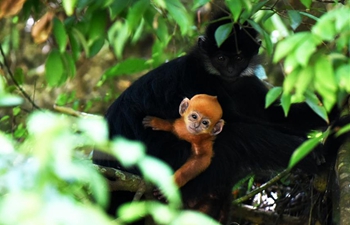SUVA, June 6 (Xinhua) -- Fiji’s Ministry of Fisheries will conduct a nationwide assessment of sea cucumbers or beach-de-mer following a ban on its harvest in 2017.
Sea cucumbers like parrot fish are filter feeders and they cleanse sand and also prey on starfish, crustaceans and fish in both shallow and deep waters keeping their populations in check. Sea cucumbers also assist in the aeration and breakdown of stratified muddy and sandy sediments reducing micro algae biomass and algae blooms. Sea cucumber stocks in Fiji waters continue to diminish at an alarming rate.
The nationwide assessment should see whether stocks had increased to improve food security in the island nation.
Fiji’s Ministry of Fisheries said Thursday this will be a huge exercise to check the stock of beach-de-mer around Fiji and then determine the most sustainable system to ensure they are not put at risk.
Fiji can learn from other Pacific island countries which have instituted similar bans. Fiji is also promoting the culture of releasing beach?de?mer to help speed up the recovery process.
Fiji’s Minister for Fisheries Semi Koroilavesau said earlier at Fiji's parliament that the aquaculture nursery in Tailevu, one of Fiji’s 14 provinces, was supplying juvenile sea cucumbers within the waters of Bua and Cakaudrove on Vanua Levu, Fiji’s second largest island, in a desperate effort to replenish stocks in the two provinces.
Koroilavesau said the decision to ban the exploitation of the marine organism was backed by research which showed that stocks of sea cucumbers have reached a critical level and that if nothing was done it would become extinct.
He added that sea cucumbers have specific functions in the ocean and their extinction could wreak havoc in Fiji’s marine ecosystem.
Meanwhile, the value chain survey undertaken by Wildlife Conservation Society and Fiji’s Fisheries Ministry revealed that in 2015, there were 13 export companies in Fiji that traded sea cucumbers.
The survey concluded that sea cucumbers were a high value export fishery, which has historically been unmanaged and threatened with over-exploitation in Fiji and throughout the wider Pacific.













